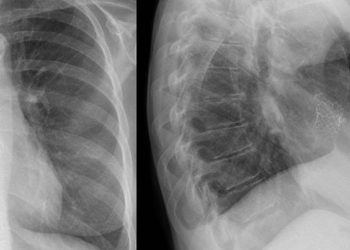Nonnormative eating behaviors may be associated with lower quality of life after bariatric surgery
1. Nonnormative eating behaviors and eating disorders are common in patients seeking bariatric surgery and improve post-surgery to varying degrees.
2. Presence of loss of control eating behavior post-surgery is associated with lower total body weight loss and quality of life.
Evidence Rating Level: 2 (Good)
Patients with severe obesity presenting for bariatric surgery often have concurrent nonnormative eating behaviors (NEBs) or eating disorders (ED) pre- and post-surgery. However, how surgery effects NEB/ED and the long-term influence these comorbidities have on weight loss and health-related quality of life (HRQOL) post-surgery remains unclear.
This was a multi-center cohort study of 748 German adult patients that examined the prevalence and prospective clinical significance of NEBs and EDs pre- and post-surgery. Patients underwent either gastric bypass or sleeve gastrectomy and were followed for up to 6 years post-surgery. Patients who did not speak German or were noncompliant were excluded. NEB and EDs were identified using the Eating Disorder Examination interview. The main outcomes measured were total body weight loss (TBWL) and HRQOL.
Overall, patients lost mean of 26.7% total body weight and had a 35.4% increase in HRQOL after surgery. NEBs and EDs were common prior to surgery with most behaviors improving post-surgery. The presence of several NEBs, especially loss-of-control eating, was associated with lower % TBWL (1.83%) and HRQOL (4.57%). However, this study was limited by potential inaccuracies in diagnosis of NEB/EDs due to current diagnostic criteria that may not be fully applicable to patients after receiving bariatric surgery. Nonetheless, given the demonstrated risk of reduced long-term HRQOL associated with loss-of-control eating behavior, further work that evaluates this association and furthermore, tests the effectiveness of targeted preventative psychotherapy in mitigating this risk would be beneficial.
Click to read the study in JAMA Network Open
Image: PD
©2022 2 Minute Medicine, Inc. All rights reserved. No works may be reproduced without expressed written consent from 2 Minute Medicine, Inc. Inquire about licensing here. No article should be construed as medical advice and is not intended as such by the authors or by 2 Minute Medicine, Inc.





![The ABCD2 score: Risk of stroke after Transient Ischemic Attack (TIA) [Classics Series]](https://www.2minutemedicine.com/wp-content/uploads/2013/05/web-cover-classics-with-logo-medicine-BW-small-jpg-75x75.jpg)

